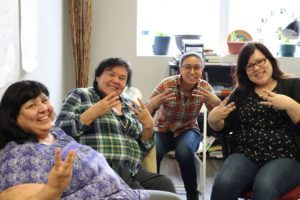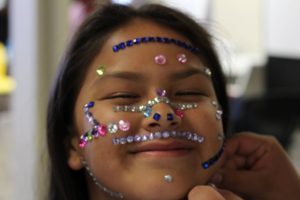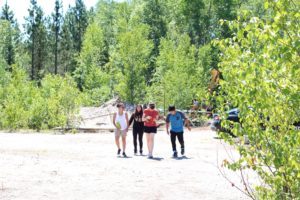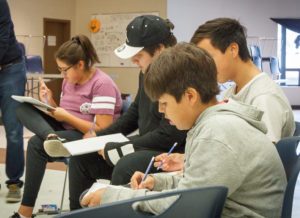Encouraging Wellness and Resiliency in Communities

Wellness and resiliency are core features in a thriving community, which is why it’s essential to promote healthy living and tools to support resilience. In 2016, Canadian Biomarker Integration Network in Depression (CAN-BIND), Ontario Brain Institute (OBI), and the Mood Disorders Association of Ontario (MDAO) started a partnership with Whitefish River First Nation (WFRN) to develop a four-part community-based youth event series that encourages wellness, life promotion, and resiliency.
Suicide accounts for 24% of all deaths among 15-24 year olds, which is five to seven times higher for First Nations (FN) youth than for non-Aboriginal youth. Although each community is different, these statistics remain uncomfortably high, inevitably devastating the overall functionality and wellbeing of many close-knit communities.
To combat this issue, the WFRN is leading youth wellness events that aim to reduce self-injury and suicide in youth. “With high risk of self-injury, suicidal ideation and suicide among FN youth, projects like these are very important. Together with the WFRN Health Centre staff and community Elders, we have begun to address various community-identified areas of mental health and wellness through our event programming,” says Trehani Fonseka, Research Associate and Program Lead of CAN-BIND’s Indigenous Program.

Working alongside the representatives and Elders of WRFN, CAN-BIND, OBI, and MDAO are helping to develop content, provide tools, and train WRFN staff to independently run the sessions. This will help to ensure these programs are sustainable within the community.
Through the use of a ‘two-eyed seeing’ model, this collaboration allows the partnering of local Indigenous traditions and teachings with Western knowledge as suggested by the WRFN community. Following a cultural framework, events are based upon cardinal directions (east, south, west and north) and take place during each season. Each season is linked to a different life promotion topic: spring (east) speaks of belonging; summer (south) is based on identity; autumn (west) focuses on self-esteem and winter (north) highlights purpose.

Through a cultural connection, the series can promote and equip the youth with different skills to help develop self-esteem, self-respect, and a sense of personal identity. By focusing on existing support networks within the community, enhancing traditional knowledge, and developing a positive outlook towards traditional values, the community can help decrease the overall risk of self-harm and suicidal ideation.
“Improving mental health support for the local youth was a high priority for the WRFN community, which is what fuelled the partnership with CAN-BIND” says Ms. Fonseka.
“When CAN-BIND reached out to different FN communities through their personal networks, the WRFN community and health center welcomed a joint partnership.”

“We are looking to decrease depression and suicide in the community by developing a critical mass of positive social supports for the youth” says Dr. Gerald McKinley, Program Principal Investigator of CAN-BIND’s Indigenous Program.
“By identifying deficits and strengths in a community we can mitigate the risk of self-harm. Feelings of belonging act as a protective factor against depression and suicide, and belonging, when thought of as relationships, is an important cultural factor for many Indigenous communities.”

The essence of this partnership lies in understanding and respecting local knowledge, customs, and traditions to ensure this initiative remains relevant and impactful for the community. The CAN-BIND-OBI-WRFN partnership has allowed for the expansion of relevant and engaging holistic outreach programs that will continuously improve wellbeing and build capacity for youth development in the community.
CAN-BIND is honoured to have partnered with the WRFN community and looks forward to building and strengthening this partnership.
We also look forward to expanding our programming to other FN communities in Ontario and elsewhere. We plan to continue to learn and develop local youth programs with community principles and beliefs in mind.
This event series was made possible by funding from a Bell Let’s Talk Community Fund grant Award.
To stay up to date with the CAN-BIND Indigenous Program’s youth events, subscribe to our mailing list, here.
Written: Anum Shivji Arwani, MSc
Editors: Janice Pong, MSc, Julie Stinson, MA, Trehani Fonseka, MSc, Shane McInerney, MD, MB, MSc, MRCPsych.